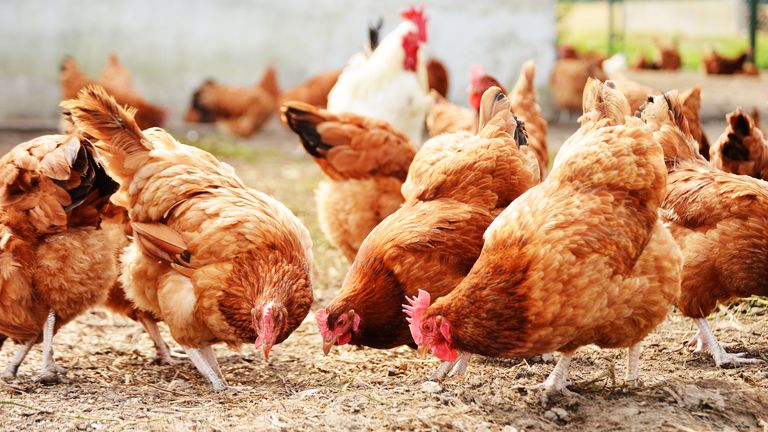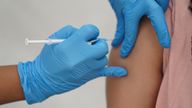A bird flu prevention zone has been declared across the UK to stop the spread of the disease among poultry and other birds, chief veterinary officers have said.
From 5pm on Wednesday, it is a legal requirement for all bird keepers to follow strict biosecurity measures to help protect their flocks.
People with more than 500 birds inside the Avian Influenza Prevention Zone (AIPZ) must restrict access for non-essential people, workers must change clothing and footwear before entering enclosures, and vehicles must be cleaned and disinfected regularly.
Even "backyard owners" with a small number of birds, including chicken, ducks and geese, are advised to take action to limit the risk and keep watch for signs of disease, said the Department for Environment, Food and Rural Affairs (Defra).
Avian influenza circulates naturally among wild birds and can be spread to poultry and other captive birds when they migrate to the UK from mainland Europe in winter.
It mainly affects birds, but the NHS says in rare cases it can affect humans.
UK health agencies say the risk to public health from the virus is very low and it's in no way connected to coronavirus, which is not carried in poultry.
The introduction of the AIPZ comes after the disease was detected in captive birds in England, Wales and Scotland, as well as among wild bird at multiple sites across the UK.
The risk of avian flu incursion in wild birds has moved from medium to high.
In a joint statement, the chief veterinary officers for England, Scotland and Wales said: "Whether you keep just a few birds or thousands, you are now legally required to introduce higher biosecurity standards on your farm or small holding.
"It is in your interests to do so in order to protect your birds from this highly infectious disease.
"The UK health agencies have confirmed that the risk to public health is very low and UK food standards agencies advise that bird flu poses a very low food safety risk for UK consumers."
Properly cooked poultry and poultry products, including eggs, are safe to eat.
The chief veterinary officers said the order does not yet include a requirement for birds to be housed, but it is "being kept under constant review".
Defra is urging poultry keepers and members of the public to report dead wild birds to its national dead wild bird helpline on 03459 33 55 77 - but warns people not to touch them.
Keepers should also report suspicion of disease on 03000 200 301.




